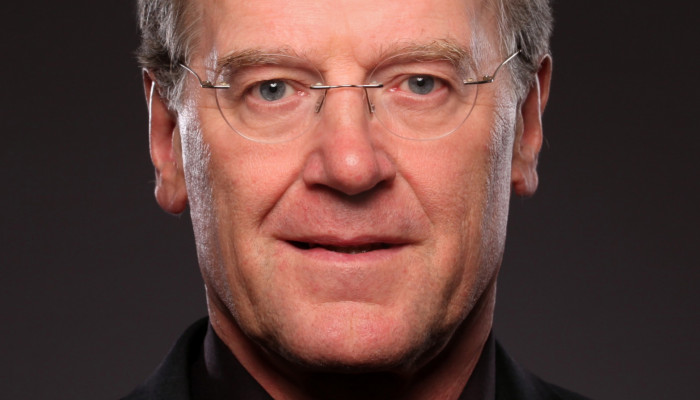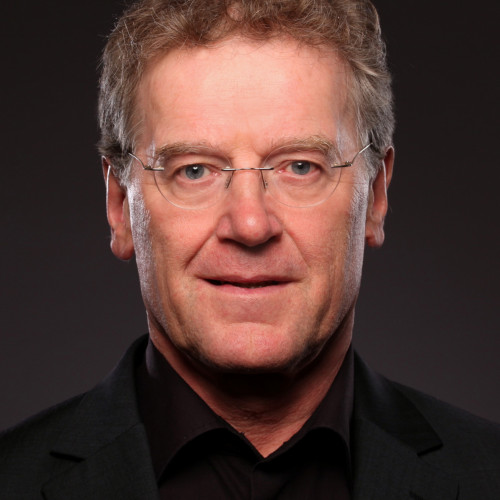MESSAGE FROM THE PRESIDENT

Dear colleagues:
For our 2022 annual conference in Malaga – the first ESC conference held in person after the pandemic lockdowns – we can congratulate and thank us all. More than 1,850 participants came to Malaga from Europe and from all over the world. And the conference was a great success, for several reasons:
- It was very well organized by the local organizers headed by Anabel Cerezo and José Becerra, as well as by an ESC team composed of Csaba Györy and Dorel Herinean who, with the help of the chairs of our working groups, took care of the scientific programme and the conference app.
- The plenary talks under the general conference headline Challenges and Opportunities in a Virtually and Physically Connected Europe: The Need for Criminology were inspiring. Those on crime and crime control through digitalization and machine learning —together with the panel sessions on these topics— were particularly up to date.
- The programme represented the whole theoretical and empirical spectrum of criminological research with 1,541 sophisticated presentations — many of them by young scholars — distributed in 436 panel sessions. It proved, again, that our 34 Working Groups are the backbone of our society’s scientific discourse.
- We are still enjoying an amazing attendance motivation. As Michael Tonry pointed out in his address for the Distinguished Services to the ESC Award: During session time, the halls and coffee and cake spots are abandoned, while the seminar rooms are well attended.
When the Board members met online in late February and March to write down the Society’s Declaration condemning the Russian war of aggression against the people of Ukraine (http://www.esc-eurocrim.org/index.php/activities/news), we hoped that Russian leaders would not succeed, and that the suffering for civilians and soldiers would not last long. The first hope became true up to now through the unbelievable courageous resistance of the Ukrainian people and the international support. Regarding our second hope, we have come to realise that the war and atrocity crimes will continue further on, at least quite far into 2023. In the meantime, the ESC will continue providing fellowships for Ukrainian criminologists to attend our conference.
For our science, these developments — that are not limited to Eastern Europe — are a call to put more emphasis on macro-criminological research, particularly on war, atrocity crimes, and state crimes. In that perspective, ESC members are already getting together, particularly through the ESC Working Groups on Atrocity Crimes and Transitional Justice (see Hóla et al., 2022) and on Organizational Crime (see Van Erp, 2015). In addition, the creation of a thirty-fifth working group has just been approved by the Board on a traditional macro-topic that somehow was still missing: the European Working Group on Organized Crime and Criminal Networks.
Our Society is growing fast. The conference in Malaga was the most attended ever. In 2019, just before the pandemic, we had 1,436 participants in Ghent; ten years ago, in Bilbao 2012 we had 792 and, in 2004, we were 509 in Amsterdam (see the graphs in the Annual Reports of the ESC Executive Secretariat published annually in this Newsletter). The number of ESC members grew parallelly, and in October 2022, we were more than 1,700. This growth is fantastic and proves how wise it was to constitute the ESC in 2000 to “bring together, in one multi-disciplinary society and on a European level, persons actively engaged in research, teaching and/or practice in the field of criminology” (ESC Constitution, Section 1 a)
Such growth, however, also means an increasing challenge for the local conference organisers. It is not as easy as it was before to find sufficient halls and rooms at walking distance on a non-expensive university campus, and to set up a programme with over 1,500 presentations in more than 400 panel sessions. Consequently, the ESC will support the local organisers through a conference coordinator and a conference implementer that will deal with the assembling of the scientific programme and the conference app. These positions will be filled, respectively, by Csaba Györy and Dorel Herinean, who, with the support of the Executive Secretariat, already took care of the programmes of the 2021 virtual meeting and the Malaga conference. We are happy that they will continue to bring their competence and experience to this core piece of a successful scientific conference.
The organisers of the upcoming conference in Florence (6-9 September 2023), headed by Barbara Gualco, are already doing a great job. The plenary programme is set up under the general topic The Renaissance of European Criminology,and all available venues in a fantastic urban and historical environment are reserved and were visited by the ESC Board during its October meeting. It is no secret that for the Florence conference, one can expect a similar number of participants as in Malaga. This also means that in the panel sessions, we will regularly have four presentations, and in some of them, we might even have five.
Finally, we would like to thank our colleagues Aleksandras Dobryninas (past president), Olga Petintseva (elected Board member) and Lieven Pauwels (organiser of the conference in Ghent), whose mandate on the Bard ended in September. And we welcome our new Board members Josep M. Tamarit (president-elect), Ineke Haen-Marshall (elected Board member), Andra-Roxana Trandafir (organiser of the 2024 Bucharest conference), and Rita Faria (new editor of the Newsletter). Many thanks go to Csaba Györy, who edited the Newsletter so carefully since 2011, and who will continue to serve the society as its conference coordinator.
The Board wishes you all the best and hopes to meet you again in September in Florence.
Yours, Klaus Boers
Holá, Barbora, Nzitatira, Hollie Nyseth & Weerdesteijn, Maartje (Eds.) 2022. The Oxford Handbook on Atrocity Crimes. Oxford: OUP.
Van Erp, Judith; Huisman, Wim & Vande Walle, Gurdrun (Eds.) 2015. The Routledge Handbook of White-Collar and Corporate Crime in Europe. London: Routledge.
